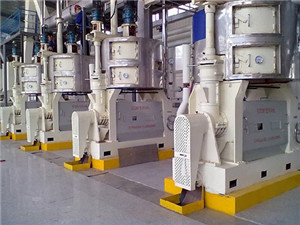Explore High-Efficiency Soybean Oil Process Machines for Optimal Oil Extraction
2025-03-14
Qi'e Grain and Oil Machinery Co., Ltd.
Case study
Discover the cutting-edge Soybean Oil Process Machines designed for high efficiency and maximum oil yield. Our advanced Soybean Oil Press Machines and Refining Equipment are ideal for small to large-scale production, ensuring quality and cost-effectiveness in edible oil and biofuel production.
Introduction to Soybean Oil Process Machines
In the competitive market of edible oils, efficiency and quality are paramount. A soybean oil process machine stands as a specialized piece of equipment dedicated to extracting oil from soybeans while refining it for various human consumption and industrial needs. With multiple stages including cleaning, extracting, and refining, these machines maximize output while ensuring the purity of the final product.
Key Stages of Soybean Oil Production
The soybean oil production process is carefully structured to guarantee high yields and quality. Below are the critical stages involved:
- Soybean Cleaning: This step employs machines such as vibrating screens and de-stoners to eliminate impurities from raw soybeans, ensuring they are clean for processing.
- Crushing and Flaking: The soybeans are crushed into small particles, followed by flaking, which enhances the subsequent oil extraction process. Roll mills are typically utilized here.
- Conditioning: Heating the flakes in a conditioner helps soften them, thus improving oil yield by reducing oil viscosity.
- Oil Extraction: Two primary methods are employed - mechanical pressing using screw presses for small-scale operations and solvent extraction for large-scale production. The latter uses solvents like hexane for greater oil recovery.
- Desolventizing: This process involves evaporating solvents from the oil, ensuring that both the oil and the desolventized soy meal are adequately processed.
- Crude Oil Filtration: The extracted oil undergoes filtration to remove impurities, preparing it for the refining stage.
Types of Soybean Oil Process Machines
Various machines facilitate the efficient production of soybean oil, each tailored for specific needs:
- Soybean Oil Press Machines: These mechanical screw presses are suitable for small and medium-scale processing, allowing for straightforward operation.
- Soybean Oil Solvent Extraction Machines: Designed for industrial use, these machines maximize oil recovery utilizing solvents.
- Oil Refining Machines: Post-extraction, these machines refine crude oil through degumming, neutralization, bleaching, and deodorization.
- Filtration Equipment: Essential for cleaning crude oil, filter presses and continuous filters eliminate unwanted particles.
- Soybean Meal Processing Machines: These machines process the by-products into valuable animal feed.

Advantages of Soybean Oil Process Machines
Investing in soybean oil process machinery comes with numerous benefits:
- High Efficiency: Modern machines can recover up to 99% of the oil from soybeans.
- Cost-Effective: Automation lowers labor and energy expenses, boosting profitability.
- Scalability: Machines are adaptable to various production sizes, making them suitable for diverse business needs.
- Versatility: Capable of processing various oilseeds, these machines maximize operational utility.
- Minimal Waste: The by-products generated are valuable and can be marketed effectively.
Applications of Soybean Oil Process Machines
The applications of these machines extend beyond just producing edible oils:
- Edible Oil Production: Soybean oil is globally favored, used in cooking and food products.
- Biofuel Production: Soybean oil serves as a primary ingredient in biodiesel, an eco-friendly alternative.
- Food Processing Industry: Refined oil is critical in manufacturing various food items.
- Pharmaceuticals and Cosmetics: Soy lecithin is a valuable emulsifying agent in these sectors.
In conclusion, soybean oil process machines are vital for efficient extraction and refinement processes. They support both small-scale enterprises and large industrial operations, contributing to cost-effective, high-yield oil production that meets the surging demand for edible oils and biofuels.



